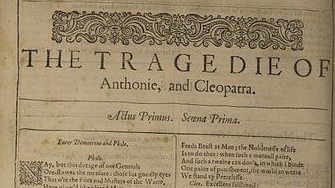18 ottobre 2019, dalle ore 10.10 alle 11.50, in aula H (Palazzo ex-Economia)
Abstract – Issues of Identity in Antony and Cleopatra
Rosy Colombo – Sapienza University of Rome
With regard to time and space as basic categories of modern identity, investigation will be made into the play’s tension between the two cities of Rome and Alexandria, both with their constitutive identity at stake: into Rome’s collapse of the republic in a political and generational crisis developed by an incompatible “stalling together” of the young “boy” Caesar with a mature, middle aged Antony; in Alexandria’s loss of the queen greatness with a consequent passage to the state of a colony . At an existential level, however, attention will be given to the intimation of immortality in a third transcendental city of love; without a name, yet reminiscent of the New Jerusalem in the Book of Revelation: the “new heaven, new earth” looming in Antony’s prophetic vision at the beginning of the play. To be found by Cleopatra, and in fact almost reached by her at the end of the play, by refashioning her own self into “fire and air” in the performance of her dying shaped by “immortal longings”.
Other forms of identity will also be tackled:
- in gender relations, with reference to the reversal of roles in the habits and games of the loving pair, but mainly with reference to Octavia’s doom to no autonomous existence;
- in the tragic form, through Shakespeare’s breaking down of decorum in assigning its climax, the crucial catastrophe, to a woman;
- in the prevalence of forms of alienation and estrangement: Antony’s split identity, dangling between Rome and Egypt; Cleopatra’s mobility and infinite variety, especially her identification with a ‘strange’ serpent (water serpent, unlike the typical Egyptian ones, like the one provided by the clown in a basket of figs) and biblically connoted;
- in the stage performance of the self as a crucial mode of agency, a displacement of identity phenomenologically other than deception; since Cleopatra’s play of her suicide coincides with her play with true death. An act which Antony had failed to perform, proving to be a bad actor.




